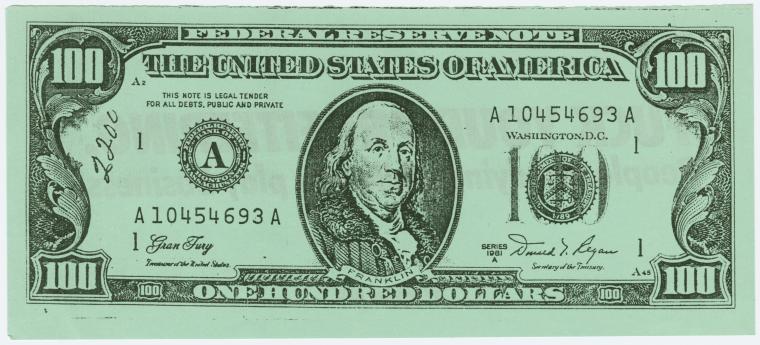Booktalking "Stealing Your Life: The Ultimate Identity Theft Prevention Plan" by Frank Abagnale
 Writing a personal check... purchasing items online... throwing out the trash, and bringing in the mail. You probably did not think that these activities could be putting you at risk, but you could be wrong. Personal checks are full of information that identity thieves relish. Hackers love stealing personal information online, possibly while sipping a cappuccino in the comfort of their homes. Thieves may also sift through your trash and steal mail.
Writing a personal check... purchasing items online... throwing out the trash, and bringing in the mail. You probably did not think that these activities could be putting you at risk, but you could be wrong. Personal checks are full of information that identity thieves relish. Hackers love stealing personal information online, possibly while sipping a cappuccino in the comfort of their homes. Thieves may also sift through your trash and steal mail.
How do you protect yourself? Investing in a paper shredder for home and office is helpful, among other things. What to do if you are a victim? File a police report, make a complaint with the Federal Trade Commission, etc. Frank Abagnale is the real-life con man turned fraud prevention expert whose life the movie Catch Me If You Can is based on.
Stealing Your Life: The Ultimate Identity Theft Prevention Plan by Frank Abagnale, 2007
Frank Abagnale has served as an expert in fraud prevention since 1975. Abagnale estimates that 60% of American companies and government agencies have been hacked. He says that half of Americans do not balance their checkbooks, despite the fact that 39 billion personal checks are written a year, each one loaded with personal info such as name, address, phone number and check routing number. Around 1987, criminal investigators became aware of a new area of crime known as identity theft. Even dead people became victims of people who were using other people's names, social security numbers, and other personal info to exploit their financial resources or hide their real identities. (Identity thieves could be attempting to avoid criminal prosecution for past actions).
 Where Thieves Find Your Information: Unfortunately, the proliferation of personal information on the Internet has made it easy for such criminals to attack. This is an under-reported crime... for some because they are embarrassed. Others simply are not yet aware that their identities have been stolen. Many people can see a check laced with so much personal information before it is finally cashed. That friendly customer behind you at the grocery store may be snapping photos of your check as you write it at the grocery store, capturing your routing number. People could be snooping in your garbage; after all, it is public property once it is placed on the curb, and anyone can legally go through it. That is why Abagnale recommends investing in a paper shredder for personal documents in your home.
Where Thieves Find Your Information: Unfortunately, the proliferation of personal information on the Internet has made it easy for such criminals to attack. This is an under-reported crime... for some because they are embarrassed. Others simply are not yet aware that their identities have been stolen. Many people can see a check laced with so much personal information before it is finally cashed. That friendly customer behind you at the grocery store may be snapping photos of your check as you write it at the grocery store, capturing your routing number. People could be snooping in your garbage; after all, it is public property once it is placed on the curb, and anyone can legally go through it. That is why Abagnale recommends investing in a paper shredder for personal documents in your home.
Public records are accessible to anyone through the phone book, voter registration web sites, etc. Some web sites sell social security numbers for less than $50. On familysearch.org, you can obtain death records and other information about people. However, credit card companies do not keep track of deaths. People can also steal from mailboxes. Criminal identity theft organizations also exist, such as Darkprofits, Shadowcrew, etc.
I have been very concerned about identity theft since I began to use the Internet more in 1996. Some family members have been victimized by identity thieves, and I do not want to join them. That is why I avoid purchasing items online. I have managed to hold out so far.
Bad Credit? Perhaps a Thief is Responsible: Identity theft can lead to a bad credit history for victims, who can be denied loans, housing and employment due to someone else's malevolent actions. People should examine their credit card statements and call the credit card company for information about any charges that they did not make. It is also useful to keep track of the billing cycles of credit card companies, since they seem to be like clockwork. If statements do not arrive, a thief could have forwarded your mail to another address... and he or she probably will not be paying your bills.

- Check your credit report (freecreditreport.com).
- Do not give out your Social Security Number (unless it is necessary).
- Protect your computer from viruses.
- Keep track of your billing cycles (credit cards).
- Examine your financial statements carefully.
- Guard your mail from theft.
- Invest in a paper shredder for personal documents.
- Practice safe shopping (online).
- Avoid dodgy ATMs.
- Be suspicious of unexpected letters, calls or visits.
- Put real (not easily guessable) passwords on accounts.
- Keep credit cards close to you when eating out or shopping.
- Use safe checks and sparingly (there is a lot of personal info on the check, including routing number, address and phone number).
- Secure your home and workplace (keep personal documents together in a safe place).
- Carry only what you need (you do not need your social security card with you always).
- Spring clean your credit cards (if you do not use them, get rid of them).
- Opt out (put your name on the National Do Not Call Registry).
- Read privacy policies (you can find out about limitations on your privacy).
- Protect a deceased relative from identity theft.
- Put fraud alerts on your credit reports.
Abagnale also issues instructions on What to Do if You Are a Victim of ID Theft.
- Call credit bureau fraud departments (Equifax, Experian, TransUnion).
- Disable all compromised accounts and documents.
- File a police report.
- Establish good records for everything.
- File a complaint with the Federal Trade Commission (FTC).
- Write your congressperson to support anti-identity theft legislation.

Catch Me If You Can: I became fascinated with Frank Abagnale after viewing the movie based on his criminal career, Catch Me If You Can. I also read the book that he wrote by the same title. Like most people, I compared the movie to the book and I found the differences interesting and revealing. He is definitely a brilliant guy and his story is fascinating.
Read E-Books with SimplyE
 With your library card, it's easier than ever to choose from more than 300,000 e-books on SimplyE, The New York Public Library's free e-reader app. Gain access to digital resources for all ages, including e-books, audiobooks, databases, and more.
With your library card, it's easier than ever to choose from more than 300,000 e-books on SimplyE, The New York Public Library's free e-reader app. Gain access to digital resources for all ages, including e-books, audiobooks, databases, and more.
If you don’t have an NYPL library card, New York State residents can apply for a digital card online or through SimplyE (available on the App Store or Google Play).
Need more help? Read our guide to using SimplyE.
Comments
Insidious Identity Theft
Submitted by Anonymous (not verified) on September 19, 2013 - 5:56pm
this book
Submitted by haley (not verified) on May 27, 2014 - 9:29am